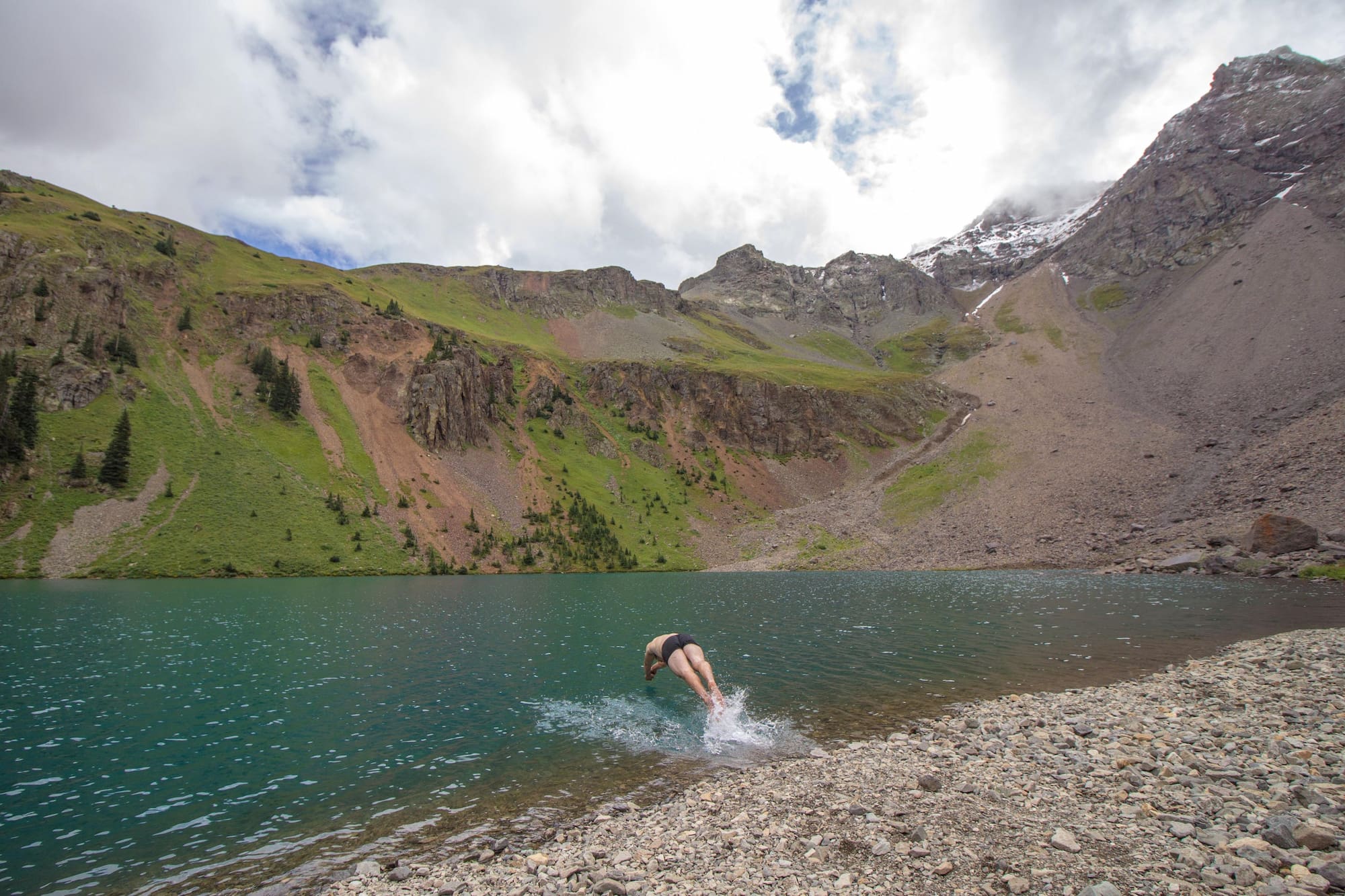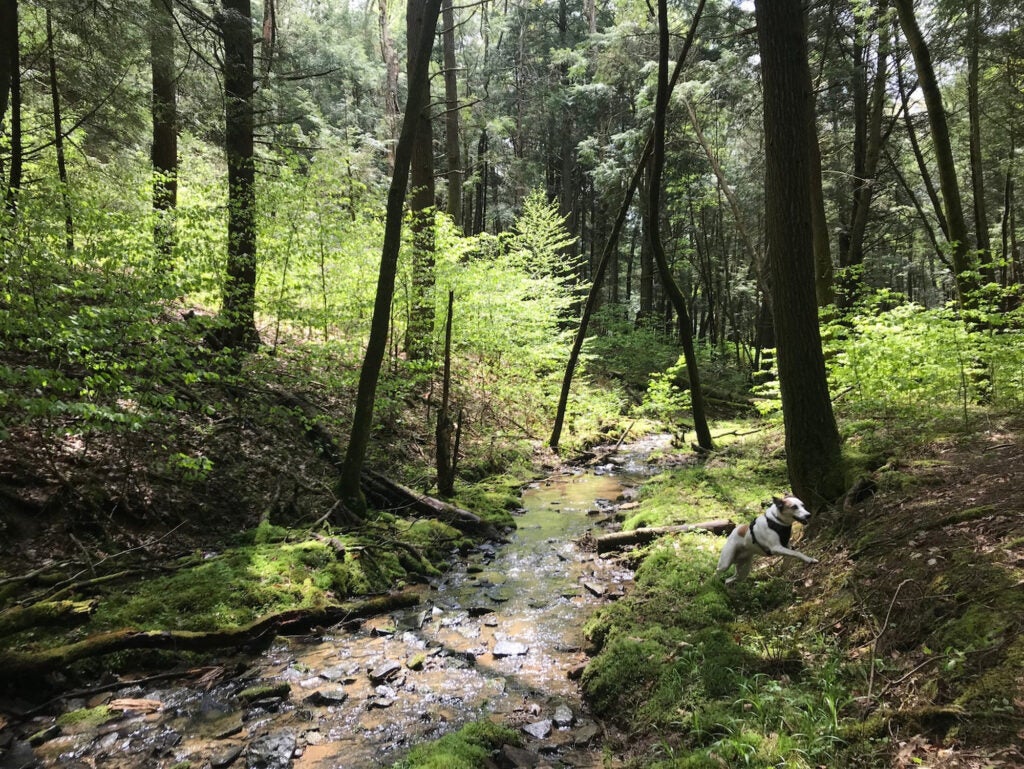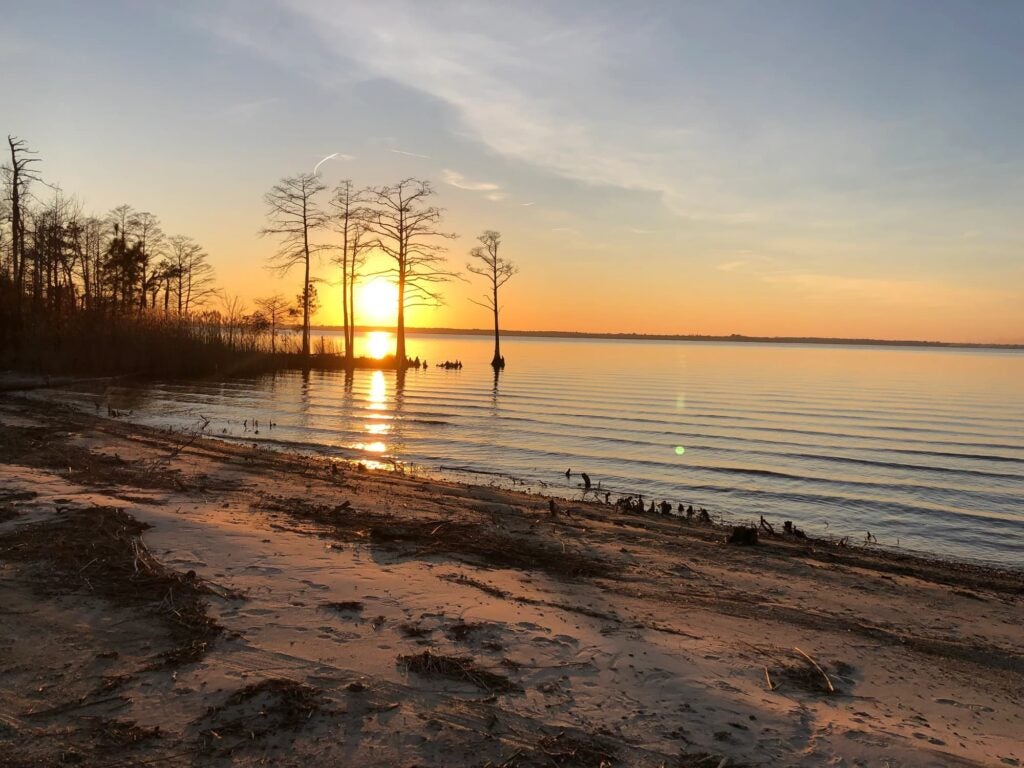With record heat waves sweeping across the country this summer, Americans are using camping to seek refuge from stifling concrete jungles in cool, shady outdoor landscapes. Camping also offers an affordable summer vacation option for those looking to get away without boarding a plane.
During the recent Pacific Northwest Heatwave, record temperatures in Portland, Oregon, reached 115 degrees. Yet only 60 miles away, campsites on Mt. Hood were 20 degrees cooler with a forgiving forest cover and refreshing mountain lakes. Camping allows for spontaneity, where you can grab your gear and leave town as soon as temperatures start to rise.
Looking to turn triple-digit dog days into a relaxing vacation? Check out these six tips on where to camp when you’re seeking some shelter from the swelter.
1. Get to Higher Ground
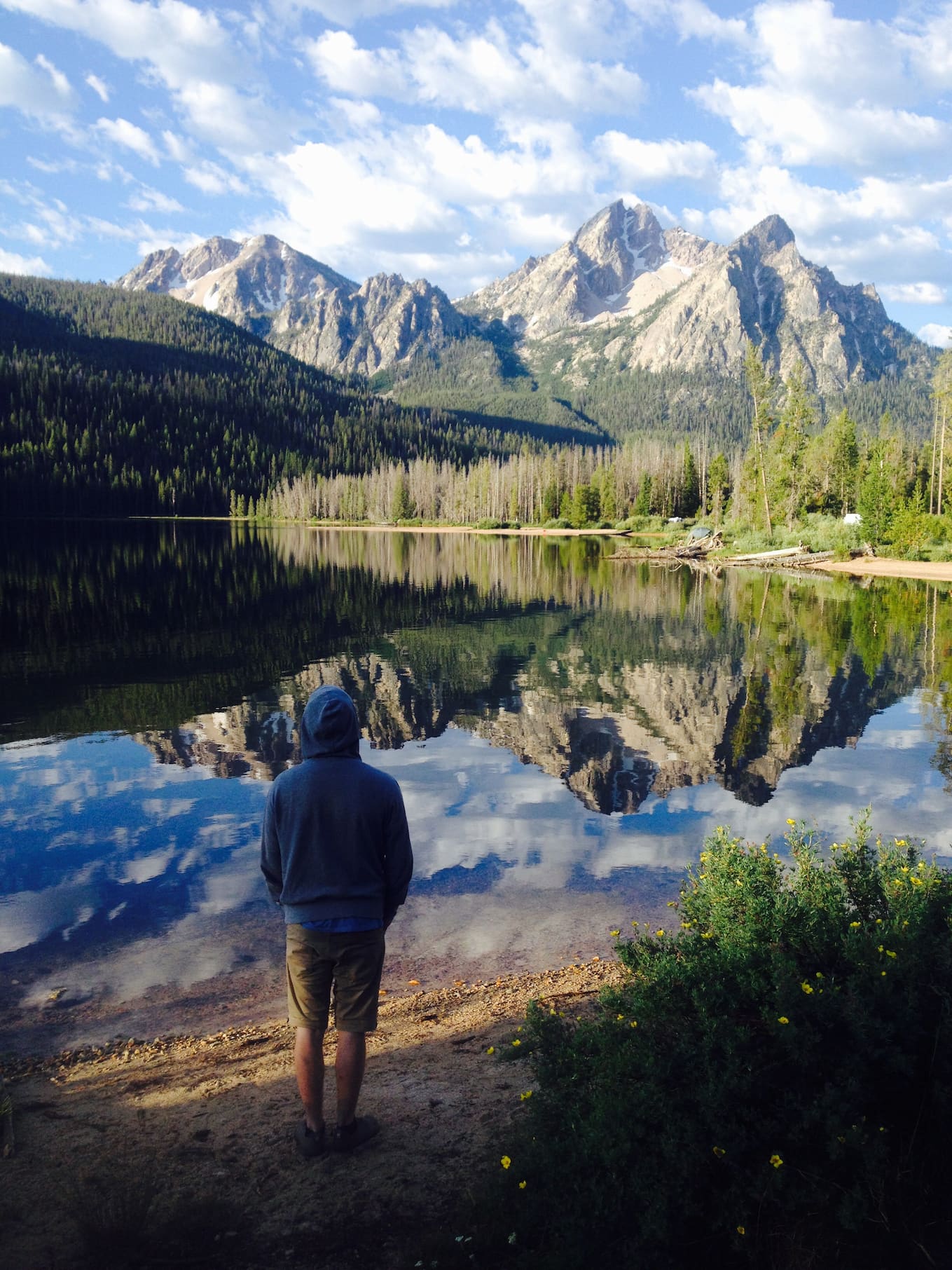
Image of Stanley Lake Campground from The Dyrt camper Amy C.
When looking for a campsite in the heart of summer, our first recommendation is to check a topographic map of the area in which you want to camp. The higher elevation you can find, the cooler you will be. The change in atmospheric pressure causes a drop in temperature averaging about 3.5 degrees for every 1,000 feet you go up.
You don’t need to be in the backcountry on top of a 14er to feel the change in temperature. Many drive-in and RV-accessible campsites offer moderate altitude and a cool relief on the sides of mountains. The Dyrt camper Erin D. beat the heat at Mount Mitchell State Park in North Carolina: “We left home and the temperature was well into the high 90s, however, the temperature on top of the mountain never came above 62!”
3 places to stay cool and up high:
- Stanley Lake Campground— Idaho (6,000 ft above sea level)
- Blue Lakes Dispersed Camping — Colorado (9,342 ft above sea level)
- Mount Mitchell State Park — North Carolina (6,684 ft above sea level)
2. Head to the Coast
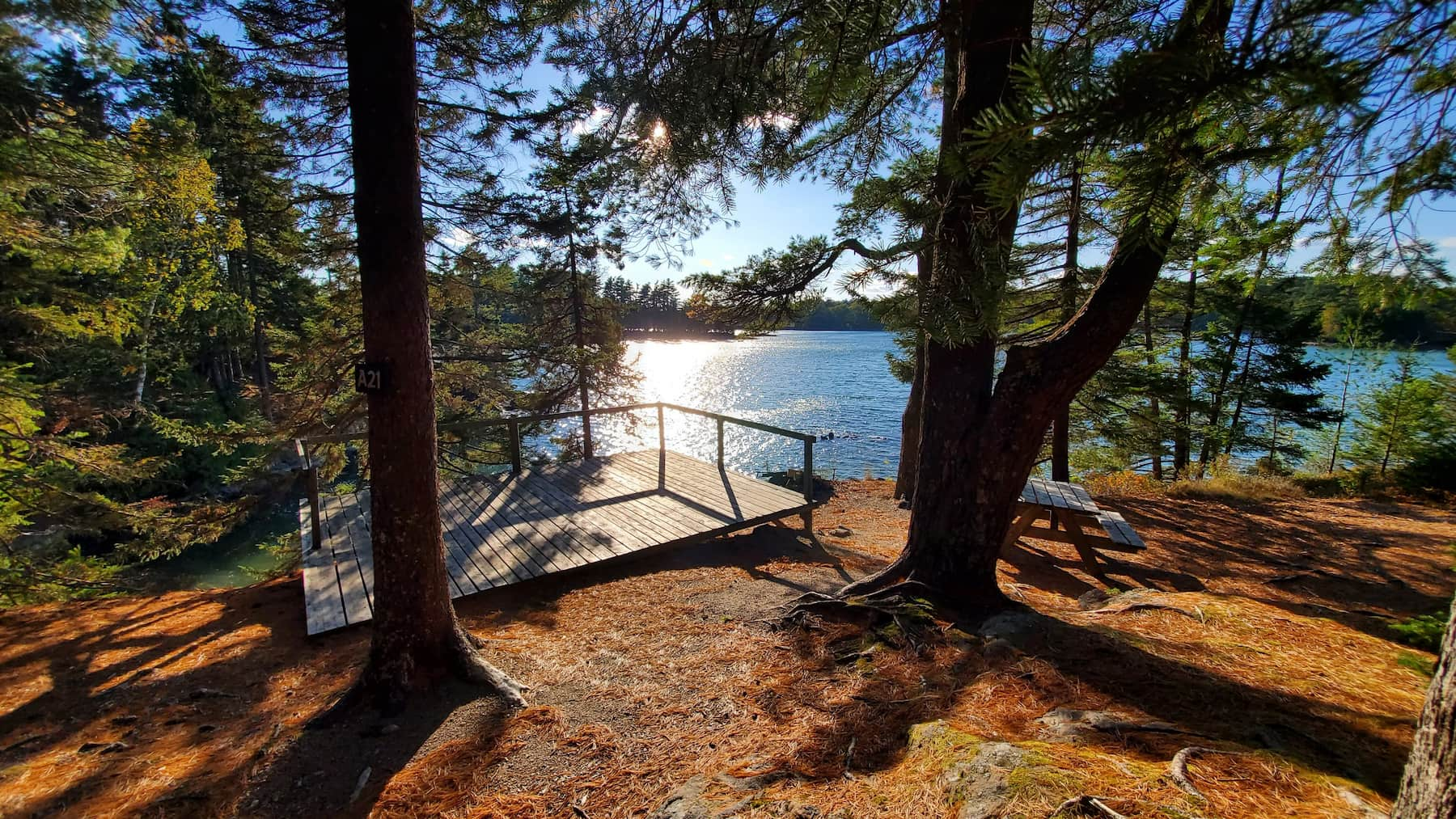
Image of Mount Desert Campground from The Dyrt camper Melissa W.
A sea breeze is as close as it gets to natural air conditioning. And when all else fails, a dip in the ocean is a surefire way to cool off. If you live by the coast or are willing to take a camping road trip, head to these campsites for saltwater relief and some pretty unforgettable sunsets.
3 places to fall asleep to the sound of crashing waves:
- Point Reyes National Seashore — California (Drakes Bay)
- Mount Desert Campground — Maine (Somes Sound)
- Assateague State Park — Maryland (Atlantic Ocean)
3. Cool Down Up North

Image of Many Glacier Campground by The Dyrt camper Brandi M.
When the temperatures start to rise in your neck of the woods, perhaps the best thing to do is jump in the car and head north. These campgrounds nestled near the Canadian border all have high average temperatures sitting in the mid-70s.
These campsites not only offer mild summers but are forested, remote, and incredibly scenic. Looking for a campsite by the water where you won’t see another soul? Head to remote Umbagog Lake where a boat drops you off and picks you up at your site. Want to camp near waterfalls and above the turquoise blue waters of Lake Michigan? Head to Twelve Mile Beach. Of course, if you are brave enough to dip your toes into ice-cold alpine lakes and want to hike in the shadow of mountains still dotted with patches of snow, head to a spot in Glacier National Park.
3 places that are likely north of where you are:
- Umbagog Lake Campground — New Hampshire (40 miles from the Canadian border)
- Pictured Rocks National Lakeshore / Twelve Mile Beach — Michigan (117 miles from the Canadian border)
- Many Glacier Campground — Montana (16 miles from the Canadian border)
4. Soak, Swim, and Float in Natural Springs
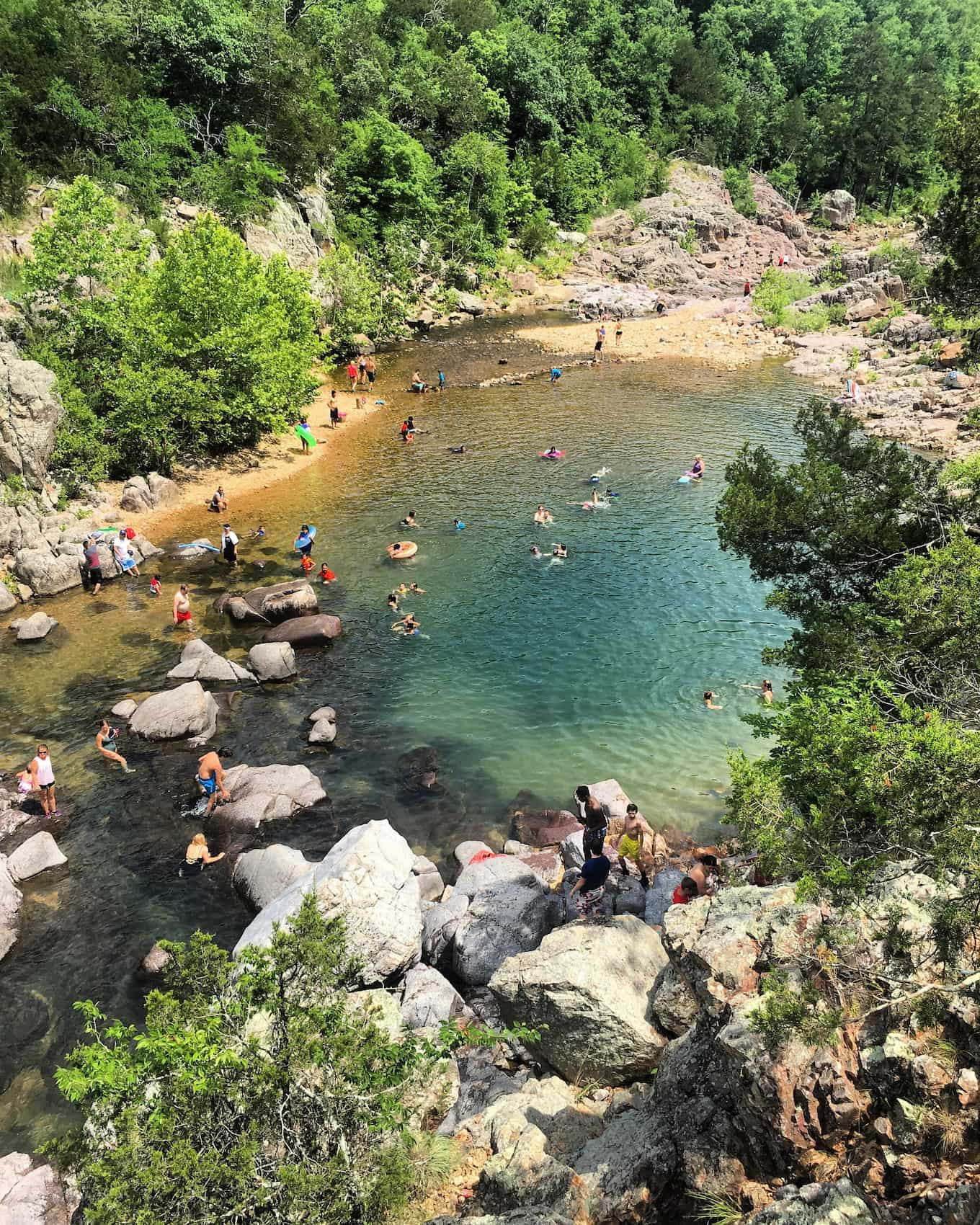
Image of Johnson Shut-Ins State Park from The Dyrt camper Erica P.
The most foolproof method for staying cool is probably keeping yourself submerged in water all day. If you are looking to wade, lounge or float to your heart’s content, we recommend camping at a shady oasis like one of these natural springs.
A pro tip from camper Audie Koe: “Always camp next to water so you can spend the day swimming and keeping cool.” Take a page from Audie’s book and head to these campsites at natural springs.
3 places to wade the day away:
- Juniper Springs Recreation Area — Florida (Natural Spring at Headwaters of Juniper Creek)
- Johnson Shut-Ins State Park — Missouri (East Fork Black River)
- Krause Springs — Texas (Natural Springs)
5. Flee to the Forest
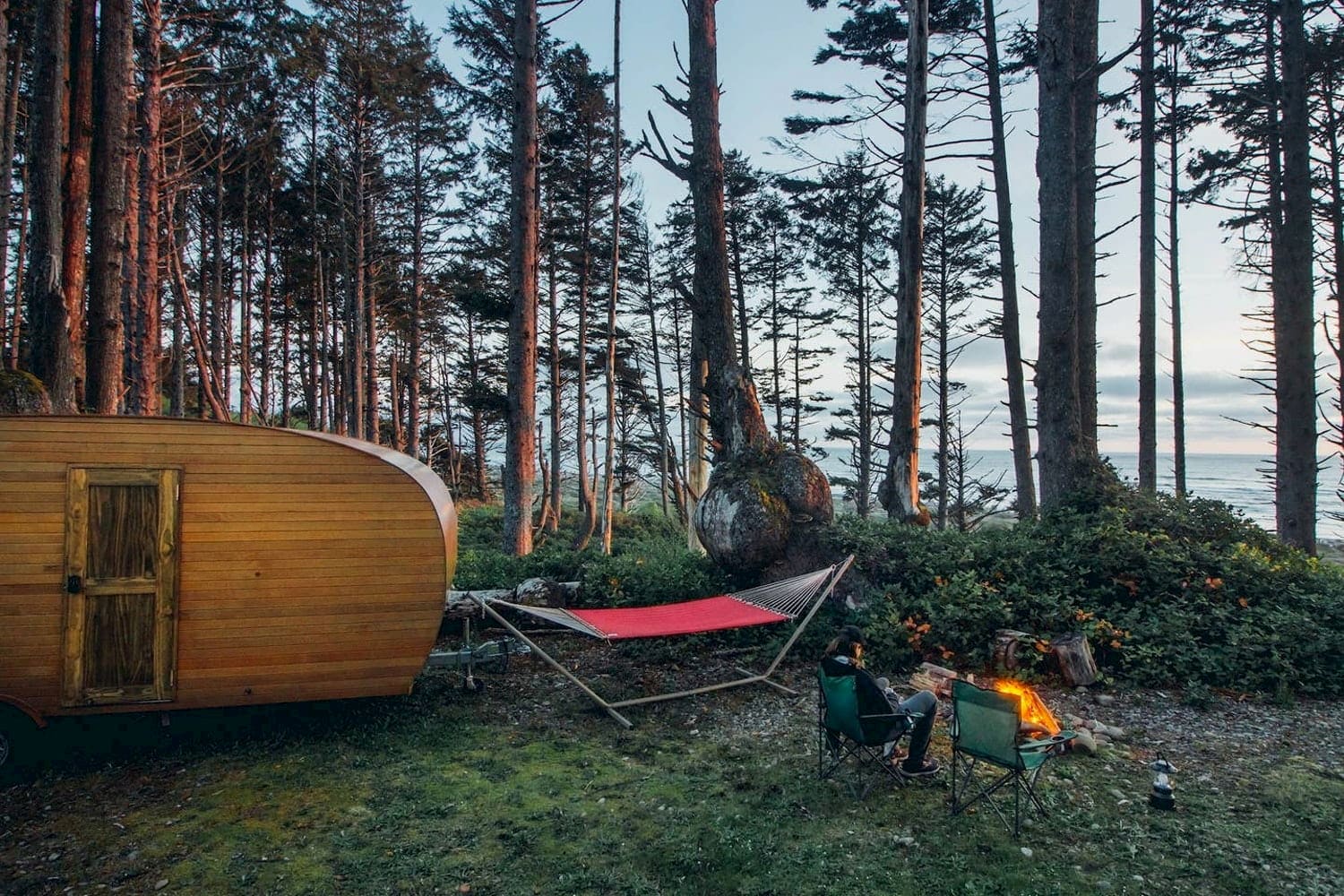
Image of Roam Beyond Kalaloch
Chances are one of the reasons your home is getting so hot is because of exposure to the sun. Most urban and suburban areas are susceptible to becoming urban heat islands, pushing temperatures sometimes up to 20 degrees higher than they would be in an area without development. Many campsites have that coveted covered forest, making them ideal spots to pitch your tent or park your RV during the summer heat.
One of the main discomforts of camping is the heat your tent or RV will take on if it sits in the sun all day. It is recommended in sunny campsites to take down your tent during the daytime to avoid this. Instead, follow camper Sue Belden’s recommendation to “find a shady spot and sit still.”
3 places to sleep under the trees:
- Roam Beyond Kalaloch — Washington (Hoh National Forest)
- Grapevine Campground — New Mexico (Gila National Forest)
- Gifford Woods State Park — Vermont (Green Mountain National Forest)
6. Camp at a Resort, With a Pool!
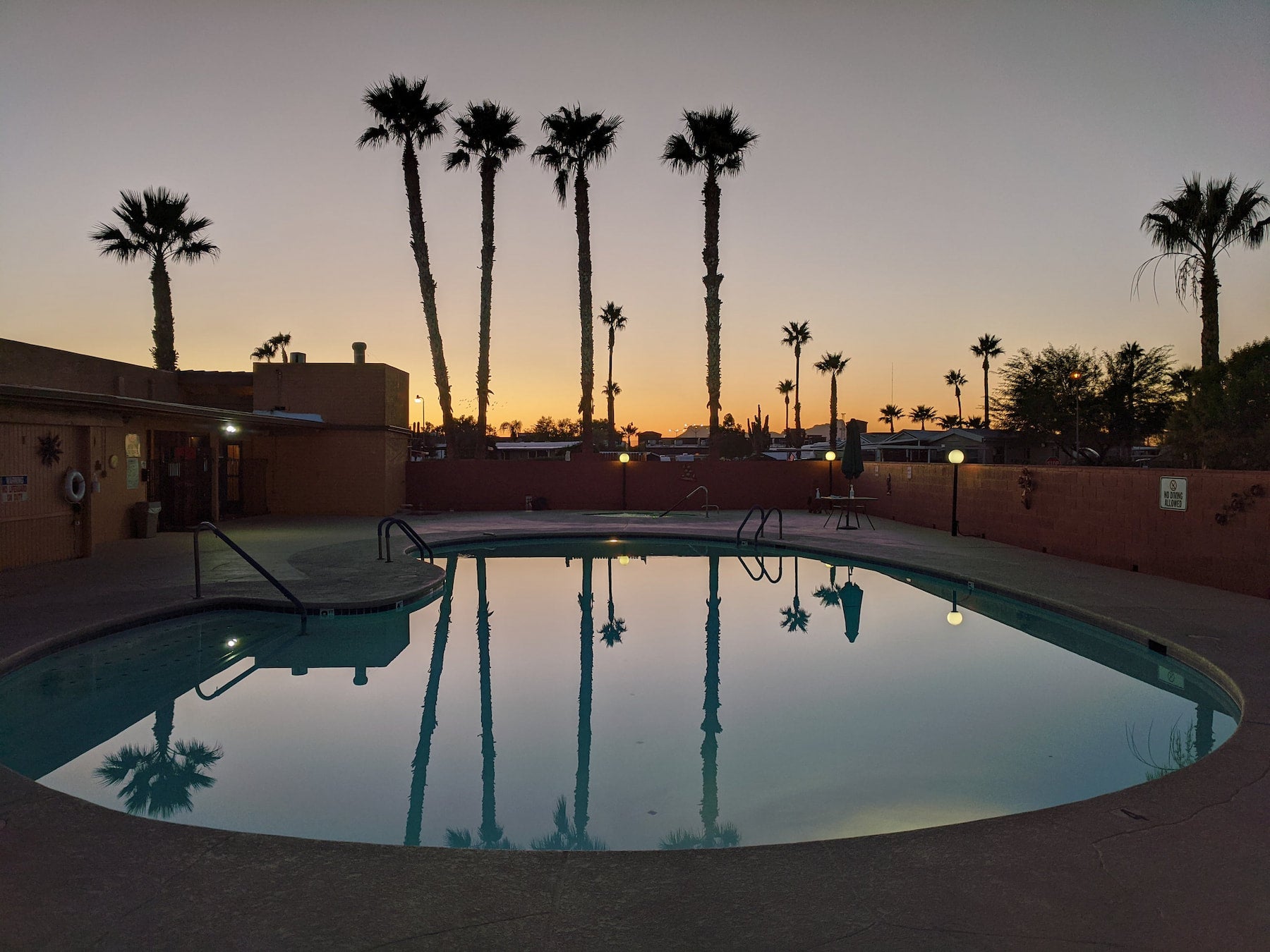
Image of South Forty RV Ranch by The Dyrt Camper Shelley
If you live in an area of the country that isn’t bordered by an ocean or lake, don’t fret! You can still getaway for the weekend and stay cool while doing it. Many campgrounds and camping resorts have pools on-site so you can kick back relax all day without ever having to get in the car.
Want to get away and keep your kids entertained? Head to Moose Hillock for a pool that rivals an amusement park and offers swim-in movie showings at night. Planning to park it in the Arizona desert and want to make sure you can plug in your rig and crank the A/C while you’re not wading in the pool? The South Forty RV Ranch has the hookup. Looking to unwind at a natural hot spring? Pull the RV over at Sleeping Buffalo Hot Springs.
3 places to relax by the pool:
- Moose Hillock — New Hampshire (Tropical pool with waterslides and swim in movie theater)
- South Forty RV Ranch — Arizona (Pool and hot tub open year-round)
- Sleeping Buffalo Hot Springs — Montana (Pools heated by natural hot springs)
Popular Articles:
Articles on The Dyrt Magazine may contain links to affiliate websites. The Dyrt receives an affiliate commission for any purchases made by using such links at no additional cost to you the consumer.

